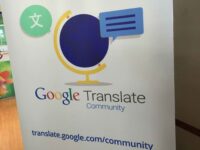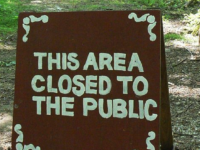The government has yet to release its final regulations for the Online News Act, but recent comments from News Media Canada seemed to suggest that it is hoping to find common ground with Google, stating that it supports the company’s proposed amendments to Bill C-18 draft regulations. While that may be a long shot – I posted that Google’s call for legislative changes signals that it has arrived at the conclusion that regulations alone cannot fix the foundational flaws in the law – the Canadian Association of Broadcasters has created yet another complication. The lobby group representing private broadcasters such as Bell and Rogers isn’t looking to find a compromise position. Instead, its submission indicates that wants all broadcasters (which given the law would include the CBC) to get an even bigger portion of the potential Bill C-18 revenues by expanding the definition of “journalist” to include everyone from sound and video engineers to researchers and fact checkers. The expansive definition prioritizes many broadcasting jobs, which would mean conventional newspaper services likely would get even less than the current estimate of 25% of revenues.
News
Regulations Alone Can’t Fix Bill C-18: Why News Media Canada’s “Surrender” May Not Be Enough to Stop Google From Blocking News Links in Canada
After months of urging Heritage Ministers Pascale St-Onge and Pablo Rodriguez to stand up to Google and Meta’s response to Bill C-18, News Media Canada – the lead lobbyist for the legislation – appears to have waved the surrender flag as it is now urging the government to accommodate Google’s concerns with draft regulations. The shift in approach unquestionably marks a retreat for the group, which literally drafted a version of the bill for the government and wielded the power of major media outlets to skew national coverage in favour of the legislation. While it insisted that the companies were bluffing when they said they would block news links if a mandated payments for links approach were adopted, it is now readily apparent that they were mistaken. Meta has blocked news links on its Facebook and Instagram platforms for more than two months and shows no sign of changing its approach. Given that Google appears to be moving in the same direction, News Media Canada’s decision to toss the government under the bus reeks of desperation as its members recognize that blocked news links on both Meta and Google would create enormous harm in lost traffic, cancelled deals, and an Online News Act that generates no revenues.
Canada Plans to Regulate Search and Social Media Use of Artificial Intelligence for Content Moderation and Discoverability
The Canadian government plans to regulate the use of artificial intelligence in search results and when used to prioritize the display of content on search engines and social media services. AI is widely used by both search and social media for a range of purpose that do not involve ChatGPT-style generative AI. For example, Google has identified multiple ways that it uses AI to generate search results, provide translation, and other features, while TikTok uses AI to identify the interests of its users through recommendation engines. The regulation plans are revealed in a letter from ISED Minister François-Philippe Champagne to the Industry committee studying Bill C-27, the privacy reform and AI regulation bill. The government is refusing to disclose the actual text of planned amendments to the bill.
Canadian Heritage Minister Pascale St-Onge’s Internet Regulation Misinformation Problem
The temperature over the government’s Internet legislation has increased this week as many Canadians wake up to the consequences of Bills C-11 and C-18. CRTC regulations on mandated registration requirements arising from the Online Streaming Act and the possibility that Google will follow Meta’s lead and remove news links for search results in Canada due to the Online News Act have placed the spotlight on harmful effects of the government’s approach. In response, Canadian Heritage Minister Pascale St-Onge has become more vocal on both social media and mainstream media in defence of the government’s approach. Unfortunately, her comments included repeated errors (suggesting that independent media has not reached any deals with Internet platforms which is not remotely accurate), maligned digital creators (saying that Bill C-11 wasn’t about them), were contradicted by the CRTC, or featured outright misinformation. I posted a pair of threads fact-checking the Minister, which are posted below. There can obviously be different views on the Internet regulation, but the Minister ought to know her file and stick to the facts.
Limiting Public Participation: Why No One Should Be Surprised at the CRTC’s Internet Services Registration Requirement Ruling
The CRTC’s decision to require registration for a wide range of Internet sites and services that meet a $10 million revenue threshold, including podcasters, adult sites, and news sites, appears to have taken many Canadians by surprise. For anyone who closely followed Bill C-11, this was entirely expected given that the bill adopts an approach in which all audio and video content anywhere in the world is subject to Canada’s Broadcasting Act. I listed many of the sites that are now caught by the regulations back in 2021 based on an internal Heritage memo that identified many that no one would reasonably describe as web giants. In other words, this isn’t an outlier. Rather, it is how the government crafted the law with a “regulate everything” default and the expectation that the CRTC would establish some exemptions. But even if most Canadians were only vaguely aware of the exceptionally broad scope of Bill C-11, they might still have missed the regulatory process that led the CRTC to establish the $10 million threshold and acknowledge that this is the first step in a bigger regulatory plan. That is because the Commission intentionally limited public participation and rejected efforts to extend the timeline for submissions on the grounds that the issue was “industry focused and relatively narrow in scope.”











